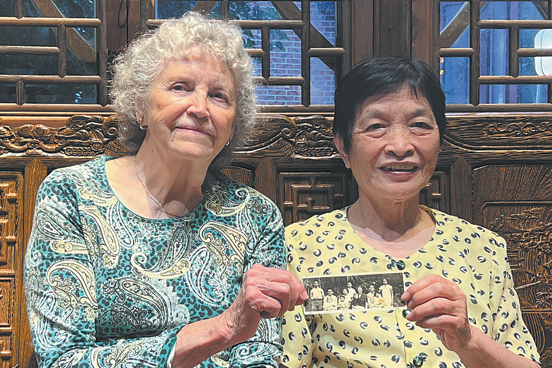Fujian's young Samaritan will not be charged
By Yang Zekun | China Daily | Updated: 2019-02-22 07:36

Prosecutors have decided not to charge a young man who injured another man while being a good Samaritan by stopping an assault.
They said the decision was based on the facts but was also intended to encourage people to be good Samaritans, the public security bureau in Fuzhou, Fujian province, said on Thursday.
According to the bureau, a man surnamed Li broke into the apartment of a woman he knew and physically attacked her after an argument on Dec 26.
Upon hearing a call for help, Zhao Yu, 22, who lived upstairs, went down and found Li assaulting the woman. When he tried to stop the assault, Li punched him twice. Zhao then punched him back, pushed him down and kicked him in the stomach. Zhao attempted to hit the man with a stool but was stopped by the woman, the bureau said.
The kick ruptured Li's colon, requiring surgery the next day. He was discharged from the hospital on Jan 12.
Zhao was detained on Dec 29 and was granted bail on Jan 10. His case was handed over to the procuratorate on Wednesday on a charge of causing serious injury with negligence.
Zhao shared the case on social media on Sunday, sparking heated discussion online this week over whether his behavior constituted justifiable self-defense and whether he should be detained.
Thursday's announcement said Zhao's behavior was self-defense but exceeded the limits of necessity, causing Li serious injury. Meanwhile, Li was placed under investigation for breaking and entering.
Ruan Chuansheng, a professor of criminal law at the Shanghai Administration Institute, applauded the decision not to bring charges but wanted the procuratorial organ to explain the case more clearly.
"Under the criminal law, justifiable self-defense is not subject to criminal responsibility, but if the defense is excessive it could lead to criminal responsibility," Ruan said.
Ji Chunwei, a criminal lawyer at Yangsan Law Firm of Guangdong, also agreed with the decision, and said the legal basis for the decision should be explained more clearly.
"Police and prosecutors usually handle self-defense cases based on how severe the consequences are, but sometimes other elements also need to be considered, such as how urgent the situation is," Ji said.
Ruan suggested that the nation's top prosecuting authority should clarify the boundaries of justifiable self-defense as soon as possible.
In September 2018, Yu Haiming of Kunshan, Jiangsu province, fought back against an attacker and stabbed him to death during a traffic dispute. Yu's actions were eventually determined to be justifiable self-defense.
The Supreme People's Court announced in September that it would further define justifiable self-defense and clarify the situations in which self-defense should be considered excessive. It will also consider what penalties offenders should face and provide a judicial interpretation. The top court did not say when it would issue the document.
























